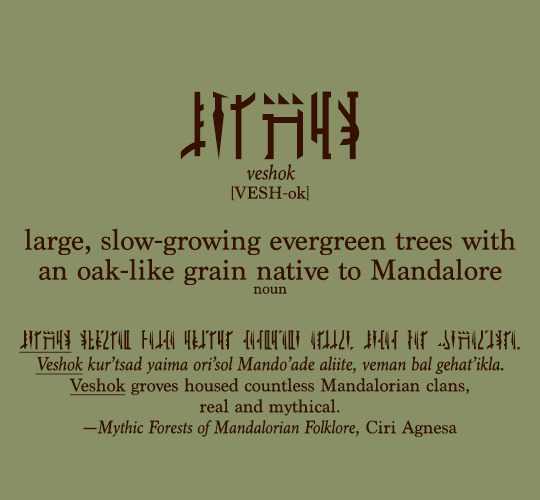Text
I was gonna say something about common being a stupid name for a language because languages are never called that, but then i remembered that actually they call standard Chinese pŭtōnghuá 普通话 aka common speech so I guess the joke is on me
40 notes
·
View notes
Text
My Favorite Mando'a Dictionaries
These are my favorite Mando'a dictionaries, although many more exist, each tailored to the creator's preferences. If you join a Mando group (server, forum, etc.), check if they have a local dialect and follow that (if you don't like it, do not feel bad about leaving). If you rely on fan resources with your works, be sure include a link to the ones you used, plus a glossary of any new words that you made.
Expanded online dictionary (original dictionary plus carefully selected fanon words); lots of great features and filters: https://mandocreator.com/tools/dictionary.html
Mando'a words from the original dictionary by theme from Coyote at Project Shereshoy: https://project-shereshoy.tumblr.com/post/681252496589619200/mandoa-words-by-theme
Expanded online translator (original dictionary plus words from the Aliit Groxus roleplaying server); this is better for looking up batches of words than for translating – read the disclaimer carefully for tips on how to use this: https://lingojam.com/GroxusMandoa
Original dictionary (unedited from the 2009 version made available by the author/creator); good for searching for commonalities between the original words without the distraction of fanon: http://mandoa.org/
30 notes
·
View notes
Text
Mandalorian clans & government
Headcanons ahead! You have been warned. Approximately 1% of what I’m about to write is canon. But I’ve been thinking a lot about how a clan based space-age society would function (how do you pay taxes? what’s the government like?), and I thought others might get a kick out of my musings too so I finally put them down and here we are.
I want to star by saying that what I describe here is far from a utopia. I wanted to explore a Mandalorian society that would be functional (no, their government is not only based on a magic sword). But I also wanted to explore where all these conflicts within the Mandalorian society come from. In my experience, some conflicts do stem from ideological differences, but most of them actually go a bit deeper and are questions about who has the money and power? Who wins and loses economically? Whose accustomed rights are being infringed on? So I wanted to explore what kind of legitimate grievances the different factions of Mandalorians might have against each other. Because that’s where stories would get interesting, organic conflicts from. I’m not interested in reading or writing perfect, can-do-no-wrong characters or sides. Give me people who have legitimate wrongs they want to fix, and other, sympathetic wrongs they want to commit. Give me people who want to do the right thing, only their right is in conflict with another people’s right. When it comes to stories, interesting is so much better than morally pure.
The origins of the Mandalorian clans
I imagine that the Taung, the original Mandalorian race, either was a clan-based society or developed into one during their wandering days after leaving Coruscant and before settling Manda’yaim. For a nomadic people, their clan would be their safety net and their basic social unit.
I also like to think that the archaic Mando’a word for a clan derives from a word for a ship: the Taung were not just nomads, they were space faring nomads. In those early times of space travel, it would have actually been the ship that was the basic social unit and the ship crew would have been the origin of the clan. And that’s why the words belly and home are related: they both derive from archaic words for a ship or a ship part. Aliit is a Modern Mando’a word that derives from a ’command group’, and was coined by Neo-Crusader recruits.
When the Taung settled on Manda’yaim, they had to adapt to a more sedentary lifestyle with permanent bases and sharing space with other ships’ crews. But when a nomadic culture adopts a sedentary lifestyle, they don’t just abandon their culture. And that’s the origin of clans—the Taung built up their organisation and government on top of the existing command structures. Ship captains became clan chieftains, ship crews became clan members. Very traditional old clans might have kept still some other positions.
And they also kept certain social attitudes: a crew is not based just on family ties (although in the early days of space travel, the crew would certainly have had their families on board). Additionally, when the Taung settled a new planet, they began as resource-rich and people-poor. So the basic social dynamic developed into one where clans compete for skilled workers and strong warriors, who in turn are free to choose which clan they want to belong to. If a particular clan has a tyrannical leader, they would start haemorrhaging workers to other clans with better leadership and/or better perks. That leads to the clan losing income and resources. Eventually the remaining members would overthrow their old leader and choose a better one. That dynamic only got reinforced when Mandalorians started conquering the nearby regions of space: war requires a lot of bodies.
In the modern days, an adult person may choose which clan they wish to belong to. Usually that’s the clan of one of their parents; sometimes though, they come to a better agreement with another clan. When you marry, you and your spouse typically decide which of your clans you want to belong to. Sometimes spouses decide to stay belonging to their clans of origin, but that’s fairly rare. Children belong to their parents clan until adulthood, at which time they may decide which of their parents clans they want to belong to. Poaching young adults for another clan is highly frowned upon, although it might be technically legal in some circumstances (it used to be completely legal, but then some assholes abused the system and now there are some additional laws and agreements in place).
Administration, bureaucracy and taxes
Administration and bureaucracy got built over top of the existing Taung command structures too. The Mand’alor is effectively the commander of the entire fleet of ships (=clans), but expects the ships (=clans) to largely function independently. The clans would pay a tithe to the Mand’alor which would finance larger public works like space ports, but a lot of local infrastructure and works would either be completely financed by local clans or at least supplemented by them. Many large endeavours would also require the Mand’alor to get additional financial backing from the clans, because the Mand’alor doesn’t directly tax their subjects.
That’s right: the basic taxation unit is the clan. In the modern days, most people choose to file their taxes under their clan (and let the numbers guy in their clan worry about it), and work out their fair contribution and tax rate with their own clan leaders. This is a fairly flexible system: when you are down on your luck, you can rely on your clan for welfare; when you prosper, so does your clan. The clan then uses a certain amount of funds to e.g. provide medical care and schooling for its members, and to pay their tithe to the Mand’alor. Originally, the tithe was based on the number of able-bodied and armoured warriors the clan could muster; today, it’s in practice based on the number of adult members in a clan.
Taxes might sound boring, but I cannot stress this enough: without taxation base and tax records, the Mand’alor cannot govern. (Did you know that the first thing most historical peasant rebellions on Earth did, was to burn the tax records?) The Mand’alor rules only with the support of the clans. The Mandalorian government is not a democracy, but it’s not a dictatorship either. In effect, an aspiring Mand’alor needs to get the backing of the clans: most critically, the big houses, but they would also receive a steady trickle of smaller independent clans and even individual people swearing to them.
Guilds and Houses
Guilds would have started out as co-operative organisations for people who either come from very small clans or don’t want to financially associate with their clan. A guild would generally provide a similar package of benefits for its members as a clan: medical care, life insurance, filing income taxes, etc. The House system is another adaptation to this dynamic. Smaller clans can band together or under the protection of a larger clan. Effectively most Mandalorians either belong to a fairly big clan, a House, or a guild. In the modern days, there is an option to file your taxes independently, but few people choose to do it—its easier and more flexible to work things out within your own House. It’s more popular in Sundari and other areas with more centralised governance (that typically hails from the caretaker government post-Dral’Han) and more public services. Belonging to any of these organisations is in no way mandatory—pretty much the only one you need to declare for any official purpose is your clan—but belonging to none is a pretty precarious way of life.
Oh and the schools and hospitals and other such institutions? Most are private, fairly affordable due to being subsidised by donations from local rich clans and big companies (Mandos have a strong tradition of contributing to the community) and operate on a sliding scale of payment. Some (e.g. small local schools) are wholesale owned by local Houses. If you belong to a clan, its most likely your tuition was (at least partly) paid by the clan instead of your parents. Ditto for your medical bills. There’s also a healthy competition in the market: if you don’t like or cannot afford a school or a hospital, you go somewhere else. Sundari and the other domed cities have more publicly funded services, since a tightly packed city inside a biodome requires centralised administration to function.
tl;dr: The clan, the House, or the guild is the basic unit that provides welfare services for an individual. Usually, the school/hospital/etc. is a private enterprise or a foundation, with ties or contracts with local clans or Houses.
Mining and land rights
The land and its mining rights belong to a clan. The ancestral clan lands go all the way back to the original settlement of the Mandalorian worlds. Since the discovery of beskar, land- and mining rights have been hotly contested and have been the source of many civil wars and inter-clan conflicts.
That means that technically beskar belongs to a clan. Indeed, it is the clan’s duty to arm its warriors. In practice, beskar’gam is partly earned by the individual and partly given by the clan. Beskar is sufficiently rare that only the richest and oldest clans can afford to clad their warriors entirely in pure beskar. Most make do with beskar alloys of various quality (the beskar content of many plates has gone down over the years and their many reforgings). Many wear partly or all durasteel or even composite. However, because of the cultural significance, usually at least the kar’ta beskar is actual beskar (or beskar alloy), even if the rest of the plates are not.
In the olden times, clan tithes could actually be paid in beskar, and often were by clans with good beskar mines. And thus the Mand’alor could then gift (or sell) the beskar to other deserving clans or warriors.
Since the land belongs to the clans, most farmers are either clan members or tenant farmers, although the tenancies are generally given to families (=family lines), not individuals, and the tenant farmers receive many of the benefits of the members of the house if they’re not members themselves (which they often are). The clan that owns the land would usually pay for infrastructure projects and the like, often with manpower provided by the communities living on their lands.
Fishing and hunting rights and other natural resources similarly generally belong to the clan who owns the land.
As an aside, this system unintendedly contributed to the Ba’slan shev'la after Dral’Han. Many clans had their lands and livelihoods obliterated, and faced a choice to seek refuge in one of the less-affected areas of Mandalorian space (which were crawling with other refugees who had recently lost everything in their name), or leave and try their luck elsewhere in the Galaxy. Many chose to leave not because of some grand strategy or masterplan, but to find work, make a living, and raise their children somewhere that was not a radioactive desert.
Disasters like the Dral’Han have left many Houses land-rich and people-poor: it’s not unusual for them to grant lands for smaller clans and families swearing to them. It’s in everybody’s best interests that the land and its resources gets managed—preferably of course by a loyal vassal clan, who pays tithes to you.
Government and law
I like to think the Mandalorians have a split system of law, kind of like common law vs. statute law. There would be the military law and the military tribunal—or in Mandalorian terms, the Mand’alor’s law, with the Mand’alor acting as the supreme commander of the armed forces. And the other branch would be the other powerhouse in Mandalorian society: clans.
I imagine there’s a Mandalorian equivalent of the House of Lords, or what might be called a Moot: a body that consists of all the Mandalorian clan chieftains. When they vote about anything, the votes are probably weighted based on the number of warriors (historically) or adults (in modern times) in their clan. In practice, a lot of the smaller clans belong to a House which would also act as a voting block—almost like a political party. This is another dynamic that makes Houses compete for clans and warriors declaring for them.
The original function of this body would have been to decide matters that are beyond any one clan—and furthermore, to arbitrate matters between clans or intra-clan grievances that cannot be solved within the clan. And this could lead to them developing into a body that handles a lot of the high-level civilian matters—or appoints civilian administrators and judges to handle them. There’s probably some wiggle room and a lot of power plays about which matters belong to the Moot and which to the Mand’alor and which perhaps are decided by the Moot, but require the Mand’alor’s agreement. On Earth, that has historically been the case between monarchs and their Houses of Lords too.
The clan law is effectively a huge pile of historical precedents upon historical precedents. So it’s a customary law in character. It’s the Mand’alor’s law that’s the more flexible one: they can just give executive commands, effective immediately. But then the next Mand’alor might countermand all of their orders. In practice though, the military law is again a pile of previous Mand’alore’s executive orders building on top of each other—that’s a part of why Jaster’s Codex was 700 pages or whatever. In this way, the Mand’alor’s position could be compared to the president or the prime minister of some democracies: they’re the highest executive power, but they don’t make the civilian laws and don’t control the courts. I do think the Mand’alor has more power than Western presidents/prime ministers though, and that they e.g. name their own cabinet. Although politically savvy Mand’alores would in practice fill their cabinet with members of powerful clans to keep them happy.
Oh, and the magic sword as the basis of government? It’s a cool prop, but it’s hardly the whole story. The right by combat sounds to me like a very old tradition preceding the Darksabre. The Darksabre just got caught up in the old tradition, and became a visible symbol of having won a duel against the old Mand’alor. However—and it’s a pretty big however—like I said previously, no one rules Mandalore without the support of the clans. There are probably many stories of some hotshot young warrior thinking to make themselves into the next Mand’alor. And they might actually manage it—for about five minutes, until the old Mand’alor’s warriors line up to challenge them. You might win one duel, but no-one will win a hundred duels in a row. Even if they would manage to keep the Darksabre, if the clans didn’t support them, they would shortly go bankrupt, and find their armies going home when they stop being paid.
So there are probably some five-minute-wonders in the history, who are quickly succeeded by the previous Mand’alor’s second or third in command. I’d also like to point out that there’s an incentive to leave the previous Mand’alor alive: they are still (often) the clan head or at least the commander of a significant number of troops present in the capital, and if they’re alive, they can order those troops to stand down. If they’re dead, those troops may choose to fight instead and hope to make the challenger’s reign very short indeed.
The New Mandalorian government
Now on this stage comes the Republic, who in 738 BBY bombs key Mandalorian worlds and leaves large swaths of them inhabitable. They also installsa caretaker government to make sure that the Mandalorian threat would not rise again. And I imagine that from the get go, this Republic oversight would have been universally loathed. But it also split Mandalorians between those who on principle refused to recognise the Republic’s puppet government, and those who saw that Mandalore was in no position to evict them militarily, and needed to do everything to ensure the Republic navy didn’t have a reason to come back and finish the job. So they chose to work within the system to fight tooth and nail for an independent, Mandalorian government.
And, well, that itself is a huge source of friction. Mandalore essentially has two governments, which don’t recognise each other: the post-excision government that grew from the Republic’s caretaker government and the Mand’alor. The clan Moot would probably be something of a grey area: perhaps it was recognised but reorganised by the post-Dral’Han government; or perhaps it was not, but traditions are not so easily killed and it still holds a lot of power in practice. Individual Houses operate in between all of these separate systems of power, striking a deal here and giving a nod there.
But I also think that a lot of the Core-inspired laws installed by this post-Excision government, and the laws that are needed to make the tightly packed domed cities run, come into conflict with the traditional Mandalorian laws. So now you have what is effectively a tripartite system of law. And there’s certain friction between all of these parts, and lots of arguments about which law applies in which case and who has jurisdiction.
This is also how the Mand’alor can be a rather hands-off position (depending on the Mand’alor) after the Dral’Han—there are two other forms of government to keep things running.
Citizenship
Let’s start with a couple of basic assumptions. First, the basic unit of Mandalorian society is the clan. Aliit is also a part of the Resol’nare. In fact, I’d go so far as to say that one cannot be a Mandalorian without a clan. I mean, in a religious sense, you have to be adopted into a Mandalorian clan to become a Mandalorian and share in the Manda. That’s why the adoption vow is literally ”name and soul”. Well, that’s the orthodox, religious view anyway. I imagine modern attitudes are laxer, but older views are probably reflected in many laws still.
Secondly, a lot of the Mandalorian space was originally conquered by the Taung. The conquered peoples could become Mandalorians, but I always got the vibe that it was an individual choice (both of the adoptee to want to become a Mandalorian and of the clan to accept them)—conversely, there must have been many people who decided not to convert. I doubt they were all put to sword either, especially after Mand’alor the Ultimate’s reforms.
So this creates a situation where there are both people who are Mandalorians by creed and by clan, and people who live on Mandalorian worlds and are not one or the other or neither.
And I like to think that Mandalore, by the accident of history, effectively has two kinds of citizenships: ”full” citizenship for members of Mandalorian clans, and ”civil” citizenships for residents of Mandalorian worlds who are not considered Mandalorians. And that these two kinds of citizenships come with different rights and responsibilities. For one, only the Mandalorians have representation in their House of Lords. Conversely, only Mandalorians are expected to answer the Mand’alor’s call and to serve in the military. Yes, this came about because I wanted to explore that whole are Jaster and Jango Mandalorians or not, and who even is a Mandalorian debates. Where do they come from? Could there be some reasonable explanation that gets garbled in the translation to Basic? In my version, there’s both a religious/creed aspect to being a Mandalorian, and a legal citizenship aspect, that overlap. So perhaps Jango was born on a Mandalorian world, but not as a Mandalorian. Just a thought.
Now the people who aren’t born Mandalorians but wish to become one by creed, they have an easy precedent available to them. They either get themselves accepted into a clan (the most common way); or I like to think there’s some kind of a provision for people who for one reason or another don’t want to be adopted. Perhaps they need to have a sponsor who’s a citizen of good standing (this would be the adopter for those who are adopted into clans, or perhaps the spouse or the spouse’s clan head for those who marry in), and let’s say two witnesses who testify they have completed their verd’goten or an equivalent trial. A clan can’t really be just one person, so I imagine that if a clan shrinks to just one member, they keep their lands etc., but lose some other e.g. political privileges until they became a clan (of more than one) again, and conversely, newly minted mandos who don’t have clans don’t get all the benefits and representation either.
Then we have people who are neither. Now these people could have legitimate grievances against how the political system operates, because it disadvantages them. And I think that’s an interesting point and an interesting conflict. Which is what stories are all about.
And then we have New Mandalorians, at least some of who are Mandalorians by clan—but they refuse some duties that come with that, and which probably actually are codified into traditional Mandalorian law. So that’s a legitimate grievance on the part of the old guard against the New Mandalorians: they want all the benefits, but dodge the draft and other legal duties. But it’s also a legitimate grievance of the New Mandalorians (mandatory military service is a violation of individual rights as their government defines them & answering to a Mand’alor who is not recognised by their laws). And what else would they define citizenship by, if not birth and residence on the Mandalorian worlds?
And I imagine that New Mandalorian government either defines or wants to define citizenship in a new way that’s not based on creed and being a member of a clan. And this is also a source of grievances and conflict. The traditionalists feel that being a Mandalorian is a creed, a choice; and that choosing to walk the way of the Mandalore has been a foundational right since the time of the Mandalorian Wars. After all, all of the modern day Mandalorians are descended of people who made that choice.
4 notes
·
View notes
Photo


305 notes
·
View notes
Text
First time I saw this, I had a good laugh and queued it.
Now it popped out of my queue and this time I have a translation for you:
Slana’pir ash’amu.
Slana’pir is a rude way to say “piss off.” It comes from slanar, ‘to go’, and pir, possibly short for pirimpir, ‘piss, urine’, or another word for a watery something. It could also be a calque of British English “bog off” (which is a contraction of bugger off, not anything to do with water), and it also makes me think of Finnish “painu jorpakkoon,” lit. “go into a puddle,” or colloquially, “piss off.” In any case, we can decide the watery something here refers to a puddle-sized body of something, not a lake for example.
Ash’amur is ‘to die violently’.
You could say slana’pir ash’amur, lit. “go to a puddle to die (violently).” Or, I’ve been having some not-very-well defined ideas about serial verbs in Mando’a, so maybe slana’pir ash’amu could be a colloquial version of “slana’pir bal ash’amu”. In any case, the implication definitely is that you’re a idiot who will lose a battle with a puddle, and lose badly enough to die.
The basic “translation”? “Go well to die (gloriously in battle),” or “go well to your death.”

Hmm, maybe:
Vercopa gar seni lo kar.
“Fly to the star(s).” Or, “I wish you’d fly into a star.” Like, literally, take your ship and make a catastrophic navigation error.
The actual blessing of course goes something like vercopa Ka’ra kar’tayli gar (gai) darasuum, “may the stars know you(r name) forever.” But a fluent speaker would know you’d never ever tell another mando that you hope they get to the manda/Ka’ra soon, because that means you wish they would die soon. Everybody gets there in their own time, as it should be—no need to hasten it. So what one would actually say is something like “may the dead kings watch over you” or “may your name be known forever (once your gone)” i.e. “may you live on forever.”
And that’s exactly the sort of a sentiment that a mando would embroider on a baby blanket or put on a verd’goten gift. But no mando, if they held a shred of respect for the Ka’ra, would ever tattoo it on themselves.
So of course in the Galaxy, there’s at least one aruetii who walked into a mando tattoo shop, asked about the merch on display, said “I want that,” and got snotty when told no. So the tattooist went, “you can’t get that because that’s how you’d say it to a baby, let me just conjugate it for you…”
tfw you’re trying to construct a phrase in mando’a and look for “well” as in good, but pull up “pirusti” for “well.” i’m sure someone out there has used pirusti for well, but like …………. pirusti doesn’t mean good, it means the hole in the ground from which to gather water. drinking water. completely different meaning, completely different thing.
but can you imagine “die well” as a Truly Mandalorian Phrase for entering battle, but the translation uses “pirusti”
“die well” doesn’t mean die well but actually means “[i hope you] die violently [after falling into a] well”
which is a great line, but not necessarily the intent of the phrase, I think
but also imagine all the fuckin … mandalorian translators fucking around with language and giving people the direct translation as opposed to the connotation?? “yeah this is definitely something you want to tattoo on yourself” and “all the hot mandos will LOVE it”
because that’s just
l m a o
#mando’a#mandoa#mando'a#meta: mandalorians#ranah talks mando’a#mandalorians#mando’ade#just mandalorian things#just mando things#star wars#mandalorian culture#mando’a language
46 notes
·
View notes
Text
tfw you’re trying to construct a phrase in mando’a and look for “well” as in good, but pull up “pirusti” for “well.” i’m sure someone out there has used pirusti for well, but like …………. pirusti doesn’t mean good, it means the hole in the ground from which to gather water. drinking water. completely different meaning, completely different thing.
but can you imagine “die well” as a Truly Mandalorian Phrase for entering battle, but the translation uses “pirusti”
“die well” doesn’t mean die well but actually means “[i hope you] die violently [after falling into a] well”
which is a great line, but not necessarily the intent of the phrase, I think
but also imagine all the fuckin … mandalorian translators fucking around with language and giving people the direct translation as opposed to the connotation?? “yeah this is definitely something you want to tattoo on yourself” and “all the hot mandos will LOVE it”
because that’s just
l m a o
46 notes
·
View notes
Text
The best decision The Mandalorian ever made was centering their show around an archetypal masked, taciturn gunslinger who wanders from town to town never putting down roots, and then revealing that he acts that way because he’s a massively awkward introvert who uses that archetype to avoid having to socialize with people beyond the three interaction scripts he already knows. 10/10, top tier characterization, I love seeing this man outshoot a bar full of people and then get scammed by a random mechanic because he’s too polite to confront her about it. Truly a hero of our times.
12K notes
·
View notes
Text

What am I going to do with you?
It would be very tempting to break it up into PRO-JOR, *jor- being the same root ‘carry’ as in jorhaa’ir, etc. because that’s the only familiar looking element there. However, that would result in a meaning like “forward carry(ing)”, and assigning the meaning “forward” to the root *pro-. Which is kind of meh, because there is also a morpheme pro- with the same meaning in English. Although it does come from Latin, so perhaps we could say it’s from High Galactic…
Or we could break it up as PROJ-OR, in which case the root *proj- is unrelated to anything else. I can’t think of a meaning that would immediately make sense though. Travel > next, “traveling (on)”?
Or, if I squint really hard, maybe it could be related to prudii > “next to, like shadow is immediately next to its caster”?? Or pru-jor, “next, like casting a shadow”???
Honestly, if it was my conlang, I would have derived the word for “next” from an existing root e.g. shekemyc ‘following, consequent, next’ or gebine ‘nearest, closest, next in space or time’.
Or have changed it to *trojor, from the same root as troan, and then both would have had meanings related to a forward direction.
#mando’a#mandoa#mando’a language#mando'a#conlang#ranah talks mando’a#mando’a roots#mando’a words#mando’a morphology
6 notes
·
View notes
Photo
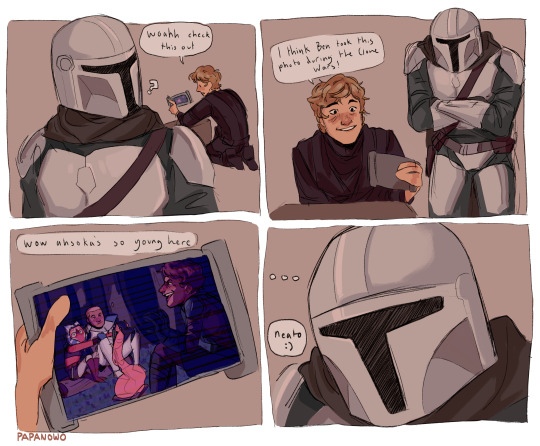
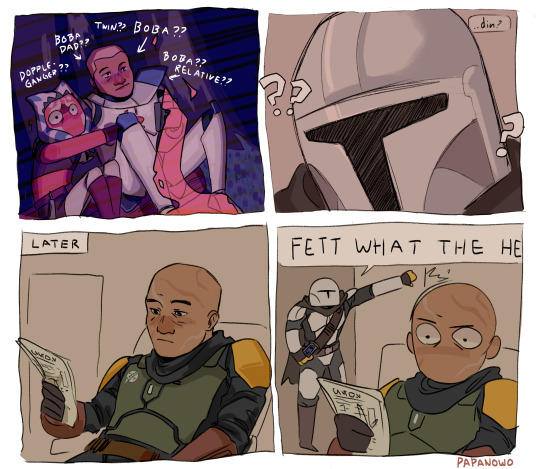
i find it kinda silly that [almost] nobody acknowledges how boba shares a face with like a super legendary army
#the mandalorian#boba fett#din djarin#captain rex#star wars#book of boba fett#luke skywalker#ahsoka tano#star wars fanart
14K notes
·
View notes
Text
Were the clones taught Mando'a?
Karen Traviss answers this question in this post on theforce.net:
The RCs were taught a lot but few were perfectly fluent at the start of the war - they really got into it a little later. The Nulls were fluent, for reasons that will become clear. Many of the ARCs picked it up, but we have no evidence that Jango spoke much Mando'a, and he never appeared to teach it to Boba. (Note to Boba: it's harder to learn a language at your time of life, son. But do your best.)
The CTs were only exposed to what they picked up from stuff like Vode An.
Original post: https://boards.theforce.net/threads/mandoa-class-mandalorian-language.21531491/page-4#post-21542532
12 notes
·
View notes
Text
Let me attempt to fill in the Mandalorian side. First let me say that some part of this comes from Canon, most comes from the Expanded Universe, some is my own interpretation of both. I’ll leave fact-checking to someone else, but here’s my take on how the Mandalorians compare—or don’t—to the Romans.
The Mandalorian history spans some seven thousand years, so the first thing to note is that the Mandalorians are not an unchanging monolith, just like the Romans aren’t. The original Mandalorian race, the Taung, originate from Coruscant. In a time lost to the mists of history, they fight a war against humans and win it, but sometime later are driven off of Coruscant. They spend a long time living as nomads and wandering around the universe, until in about 7000 BBY (= BP in space) they find the planet Mandalore, settle there, and name themselves Mandalorians.
A side note: think of all of the galactic dates as having an extra zero in them to make them ”galactic” in scale. They will make more sense compared to human history that way, trust me.
From their capital world Mandalore, the Mandalorians then rather slowly conquer nearby planets and worlds, in a fashion that might be compared to Romans consolidating their power over the Apennine peninsula. Already early on, they encounter another peoples (the Mandallian giants) who are fearsome warriors and gain the respect of the Mandalorians to such a degree that they come to believe they are worthy of becoming Mandalorians and being adopted into Mandalorian clans. That sets an important precedent for later, although for all intents and purposes such adoptions seem to have been rather limited in the early days of the Mandalorians.
A foundational idea of Mandalorian philosophy and world view is that the universe is in a constant war between the forces of growth and stagnation. The basic vehicle for growth is struggle and conflict, or what we might term creative destruction. War is the ultimate expression of that struggle. Mandalorians don’t believe in a predetermined destiny—for them, conquest is more of an effect of them seeking opportunities to test themselves and manifesting their purpose in the universe.
This is the ideological basis for these original Mandalorian crusaders, who conquer the nearby regions of space, sometimes wiping out entire races. Yeah, these guys really aren’t out there to bring peace and prosperity by the force of sword. Their conquest appears to be more along the pattern of pillaging worlds and then moving onto the next target. They do however permanently settle at least a few worlds. They’re not stupid—of course they understand that by governing the conquered worlds, they can extract wealth and power—but peaceful governance is really more of a side product of their quest than the goal itself. Because this is Star Wars, we unfortunately don’t have a good idea of what kind of rulers the Mandalorians were, but by the genocides, we can pretty definitely say they weren’t fighting to civilise the world like the Romans. A better comparison at this stage would be the Vikings: there are regions where the Vikings form permanent settlements, but they are also raiders who didn’t necessarily go out with the intent to form permanent Viking kingdoms on the lands they conquered.
Over time, the Mandalorians go from worshiping a trinity of deities representing the cosmic forces (a deity of growth/war/creative destruction, a deity of stagnation—which I interpret to have been originally a deity of preservation/stagnation—and a deity representing the fickle nature of luck), to worshiping just the deity of growth/war (and probably in the process deprecating the deity of preservation to the bad guy representing just stagnation), to seeing war as the definitive expression of that worship, to viewing war itself as divine.
This development eventually leads to Mandalore the Ultimate (= the Mandalorian Emperor at the time), who in receives a vision telling them to accept all worthy warriors as Mandalorians and open the Mandalorian clans to them. A more cynical reading is that this is a rather clever piece of religious propaganda that allows them to fill the ranks of their army which at this point might have been depleted by previous wars or perhaps bad policies of their predecessors. By adopting the conquered peoples into the ranks of the Mandalorians, the Mandalorians could go on to conquer indefinitely. The second part of their reforms is to move from raiding to holding onto the conquered territories, building an industrial Mandalorian society there. This is actually when Mandalorians would make a reasonably good comparison to Romans offering Roman citizenship to their new subjects. Although the Mandalorian version appears to use more sword and less carrot: it’s unclear how many of the new recruits volunteered and how many were press-ganged into service. In any case, the scale of recruitment appears to have been massive: the number of the non-Taung would shortly eclipse the number the Taung.
The legions… whoops, armies of the so-called Mandalorian Neo-Crusaders thus swelling up, and the religious fervour of the officer class (= the Taung) whipped up by this new vision of divine war, leads to a brief but incredibly intense period of galactic-scale warfare called the Mandalorian Wars (3976-3960 BBY). The Mandalorian armies make their way all the way to the Galactic Core and Coruscant, the capital world of the Galactic Republic, itself. Desperate, the Republic deploys a doomsday weapon in 3960 BBY on the planet Malachor V, destroying the entire planet, the Mandalorian fleet present at the battle, and most if not effectively all of the Mandalorian leadership. This is a catastrophic defeat for the Mandalorians.
Their leadership is left in complete shambles and they cannot hold onto most of their recently conquered territories, which the Republic swiftly retakes. The ranks of the Taung have been decimated—and they will soon after go completely extinct (or perhaps more realistically, interbreed with other races until they’re effectively extinct). The large numbers of newly minted Mandalorian legionaries, uh, soldiers are left leaderless and with a rather tenuous connection to their newly adopted culture, clans, and a nominal homeworld most have probably never seen. This leads to some 300 years of disarray and diaspora for the Mandalorians.
Once the Mandalorians re-emerge on the galactic stage, they are a different people: instead of Taung, the ranks of the Mandalorians now consist of every species—anyone, regardless of race or birth, can become a Mandalorian. Mandalorians have thus completed their change from a race to a creed: the culture forged amongst the mixed ranks of the Neo-Crusaders is who the Mandalorians have become as a people now. Instead of the ethos of divine warfare, Mandalorians now reinterpret their old gods as allegorical and believe in a collective oversoul, the Manda. Effectively, the philosophical underpinnings of the culture and faith transform from constant pursuit of conflict to a focus on survival and shared identity.
So that’s the story of the Mandalorian Empire. There are similarities to the Roman Empire: namely, the expansion wars, the huge legions made up of citizenry, and how they use a shared identity overriding ethnic group identities to unify disparate conquered peoples. But there are also clear discrepancies: the Mandalorians are a regional power for most of their history, followed by a brief crash and burn attempt to take over the galaxy, and a return to a regional power. They are a strong regional power, make no mistake, but they don’t really have a claim to an empire that lasts a thousand years and covers half of the known world. The cultural inheritance of the Mandalorians and the Romans is different too: the Mandalorians end up totally transforming their own culture, but the inheritance they leave to the rest of the galaxy is mostly a deep fear and suspicion of the Mandalorian legions (this will come back to bite them later).
P.S. Here’s what happens “later”:
Between the Mandalorian Wars ending in in 3960 BBY and where we pick off the story again, is some couple of thousand of years of galactic history, including a couple of Galactic Wars. Neither canon nor EU offers a lot of information about this period, so we’re skipping it. Between 2000-1000 BBY, the galaxy is embroiled in a thousand year war between the Galactic Republic and the Sith Empire called the New Sith Wars. The Republic prevails, but when the war ends in 1000 BBY, both the Republic and Mandalore are in shambles. The Republic has effectively ceased to exist in large parts of the galaxy. They turn inwards and reorganise in what is called the Ruusaan Reformation.
On the Mandalorian side though, in 1058 BBY Mandalore the Uniter calls the Mandalorian clans to return home to the Mandalorian worlds. This leads to a movement called The Return, which could also be termed the Mandalorian renaissance: a period of growth, innovation and military strength. This new growth and yes, expansion, leads the Republic (now back on its feet) to conduct a pre-emptive strike on Mandalore. In 738 BBY, the Republic forces lead a surprise blitz of orbital bombardment on Mandalorian worlds, leaving large parts of the planets uninhabitable, and their military power broken. In a savvy move, the Republic also installs a pro-republic caretaker government to make sure Mandalore does not just go down, but will never rise as a threat again.
This leads to a deep schism amongst the Mandalorians: while no faction could be called pro-Republic, Mandalorians are split into a peace movement and what could be termed traditionalists. The peace movement—very reasonably—believe that Mandalore needs to play nice with the Republic, because there’s no chance Mandalore as it is could succeed against them, and they need to make very sure the Republic navy doesn’t have a reason to come back and finish the job. The traditionalists—also very reasonably—do not want to play nice with the Republic puppet government. Instead, they execute what is called a ba’slan shev’la, or a strategic disappearance. They go to the ground, or vanish into the galaxy to avoid giving the Republic a target, while they bide their time and regather their strength.
The peace movement will eventually lead to the New Mandalorians; the traditionalist sections will eventually lead to the True Mandalorians, a moderate traditionalist sect, and the Death Watch, who yearn to return to the glory days of the Mandalorian Empire. The Death Watch mostly succeeds in wiping out the True Mandalorians—with the unwitting aid of the Jedi, with Jango Fett as almost the sole survivor—shortly before the events of the Star Wars movies. And thus the stage is set for the Clone Wars. Which turn out to be not just the grand plan of the Sith, but also the ultimate revenge of a pissed off Mando.
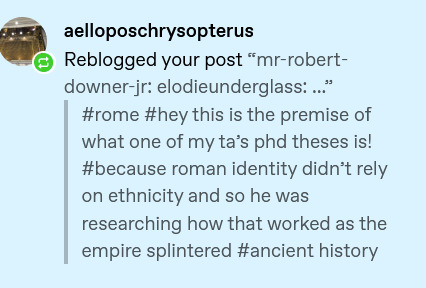
So, @aelloposchrysopterus, if you were to make a post paralleling the Roman concept of identity with Mandalore--
#ancient rome#ancient roman empire#roman empire#the aeneid#star wars#mandalore#mandalorian history#mandalorian culture#meta: mandalorians#mandalorians
162 notes
·
View notes
Text
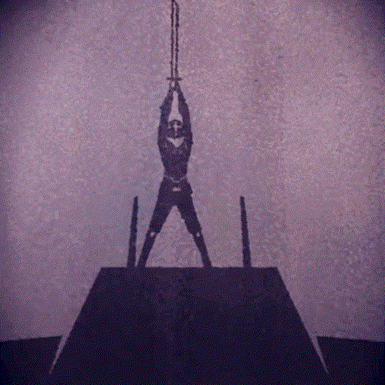
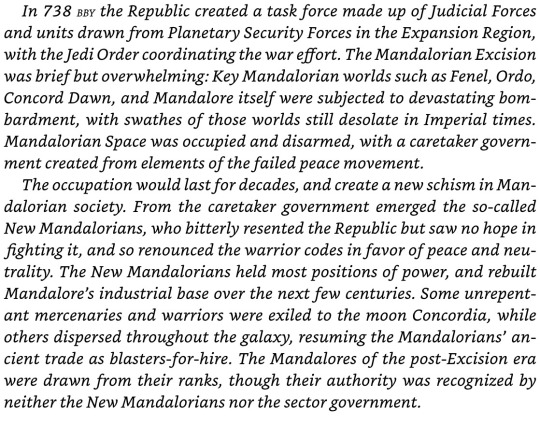

MANDALORIAN LORE OF THE DAY: THE MANDALORIAN CIVIL WAR
Source: Star Wars: The Essential Guide to Warfare by Jason Fry
355 notes
·
View notes
Text
Mandalore: Home of the fearsome Mandalorian warriors
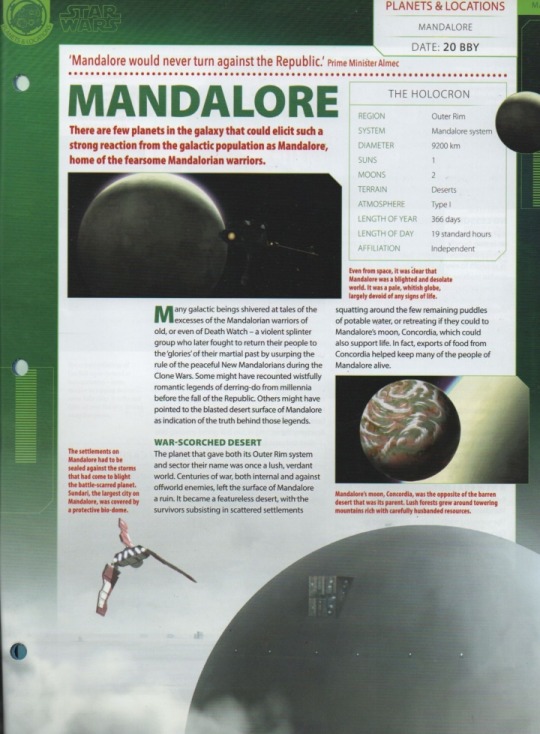


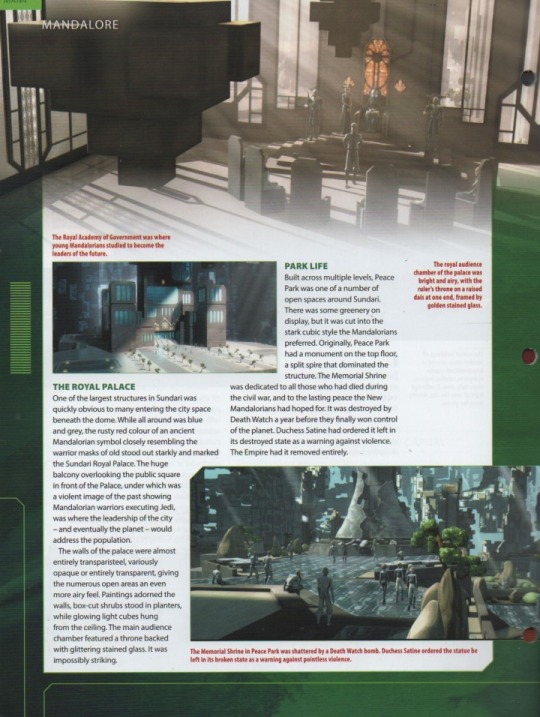
The Official Star Wars Fact File Part 98 - Planets & Locations
#star wars#mandalorians#new mandalorians#evaar'ade#evaar mando'ade#mando'ade#sw mandalorians#mandalorians reference#sw reference#star wars reference#sw#mandalorian history
17 notes
·
View notes
Photo
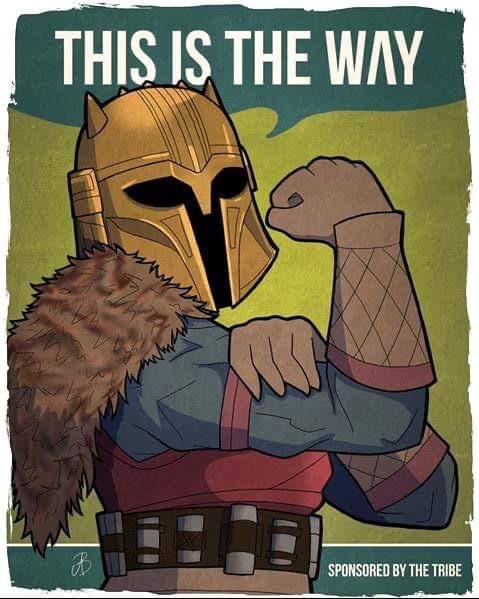
#star wars#the armorer#rosie the riveter#homage#alyssa bradley#the mandalorian#star wars art#the mandalorian art
4K notes
·
View notes
Note
What do you think is the correct word for "greater Mandalorian space"? I've seen 'Mandalase', don't remember where though, and have been using Tra'Manda in my own fics. Is there anything established in canon/fanon?
Good question! I’ve pondered it myself and the answer I’ve arrived at is that there should probably be several words.
See, what is meant by “the greater Mandalorian space” probably varies depending on the time and the speaker and the context, because the Mandalorian civilisation is a bit like the Roman civilisation: do you mean Rome the city, Rome the administrative region, the Roman Empire, or the Roman world as a cultural area?
For Mandalore we have at least these different senses:
Mandalore the planet (“Mandalore actual” or Manda’yaim)
Mandalore system (which includes at least three other inhabited planets and moons)
Mandalore sector
The entire area of space administered by the Mandalorian government (which is never really defined in canon)
Mandalorian Empire (historical)
The wider Mandalorian cultural area/area influenced or historically a part of the Mandalorian Empire
The indented words are from the unedited parts of my dictionary, so they are somewhat tentative and I’m not necessarily married to them. However this is what I currently have.
#1
The first is easy, the planet Mandalore is called Manda’yaim in Mando’a.
Manda’yaim: 1 the planet Mandalore, the fifth planet in the Mandalore system, capital world of the Mandalorians; 2 during periods of diaspora, can also refer to other Mandalorian areas or enclaves
haat’manda’yaim: Manda'yaim proper; planet Mandalore in contrast to its satellite Concordia, other planets in the Mandalore system, other Mandalorian worlds, or Mandalorian enclaves of the Mandalorian diaspora
#2
The Mandalorian system we can probably form directly from the word for a star system, perhaps Mando’tolase, lit. Mandalorian system, assuming tolase is also the word used for star systems and not just for other kinds of systems (not sure which way I lean on it tbh). Or Manda’tolase, if you subscribe to the fandom take that the star Mandalore is named Manda (or a variation thereof).
Or people might colloquially refer to the Mandalorian system also as Manda’lase.
I imagine there’s probably some kind of interplanetary law which defines what area of space is considered to belong to a planetary system and what is “international waters”/deep space.
#3-4
The third is what I suppose you were asking about. I’ve seen Manda’lase all over the place, but I don’t actually know where it came from—if anyone does know, please let me know! Linguistically the derivation goes something like this: manda ‘the shared Mandalorian oversoul’ > manda’la ‘having the Mandalorian soul, i.e. Mandalorian’ > Manda’lase ‘all of Mandalorians collectively’. In any case, I rather like it and have been using it myself since it seems about as established as anything in Fando’a.
Edit: Manda’lase appears to have been coined by Batsutousai; thanks for @johamur for pointing it out!
Mando’tra, Mandalorian space could also work. Manda’tra, substituting the word mando ‘mandalorian’ for manda ‘soul’, sounds to me a bit like the emphasis is on the shared culture less than the shared administration. Not that Mandalorians themselves necessarily see a big difference there.
It’s unclear whether Mandalore sector refers to a geographical area or an administrative region. I guess in everyday speech, people might conflate the two and use Manda’lase for both. So you might end up with a definition something like the following:
Manda’lase: 1 Mandalorian space; 2 Mandalorian system; 3 Mandalorian sector (colloquially)
In any case, I haven’t come up with a word for sector I like yet, although it’s on my list of needed words.
#5-6
For the historical Mandalorian Empire, I have:
Mando’alorai (or Mand’alorai): 1 Mandalorian Empire (historical); 2 still sometimes used of the regions that used to be governed by the Empire as a cultural area
alorai (n): 1 empire; 2 realm, domain, holding, governed area
Where alorai is either a portmanteau of alor + veeray, or alor + the same nominal suffix -ai we have in e.g. parjai.
Another option is:
Ori’Manda’lase: Mandalorian Empire (lit. Great Mandalore); Greater Mandalore, the historical region of space once controlled by the Mandalorian Empire
ori’manda’la (a): imperial (of Mandalorian Empire specifically, not other empires); of or belonging to Greater Mandalore, the historical region once controlled by Mandalorian Empire
ori’manda’lase tugoten (n): Mandalorian Empire Revivalism (Revanchism), an ideology on Mandalore that supports the revival of the Mandalorian Empire and a return to Mandalore's conquering days.
ori’manda’lase tugotenii (n): Mandalorian Empire revivalist, a supporter of Mandalorian Empire Revivalism. Tugotenii for short.
I’m using revivalism and revivalist over revanchism and revanchist, because in the Star Wars universe revanchists could be confused with supporters of Revan.
In any case, I think context should determine whether you mean the historical empire as a nation state, or the historical empire as a current area of cultural influence. Most reasonable beings would use Mandalorian Empire in either of these two senses, but then you have the likes of Tor Vizsla, who’d probably use a term with a similar sense to “Greater Russia”, i.e. areas that “should” belong to or be returned to Mandalorian governance.
I have some other scattered words and thoughts about Mandalorian government and citizenship, but this is already pretty long. In any case, that’s what a quick search through my dictionary file brought up, hope you found something to your liking!
#mando’a#mandoa#star wars#meta: mandalorians#mando’a language#mandalorians#mando'a#mando’a extended dictionary#ranah talks mando’a#ranah answers#answered asks#asks
14 notes
·
View notes
Text
Knowing the conditions under which new superstitions tend to develop fastest and last the longest, I've always thought it was an egregious oversight that spacers in Star Wars aren't portrayed as being particular superstitious people for whichever species or system they hail from.
But maybe I'm wrong. After all, it's a universe with real magic. What if Force skepticism of the style Han exhibits in ANH *IS* the gffa equivalent of superstition??? The longer you hang out with career pilots, pirates, smugglers and freight crews and/or the more time you spend navigating alone or with just your crew the less you believe in not only the Force but literally any demonstrably real but rare phenomenon people from the Milky Way would think of as "magic", as well as things like synchronicity and luck.
If you don't set foot on a planet for 5 years straight you are legally banned from spectating at sporting events in half of all systems and you can't watch space Ghost Files without ruining it for everyone else by loudly debunking the ghosts while people are trying to hear the dialogue.
#luke: do you think the moon landing is real?#han: *scoffs* you believe in the moon?#including the original tags bc they the best#star wars#force skepticism#spacers#han solo#superstition#luke skywalker
20 notes
·
View notes
